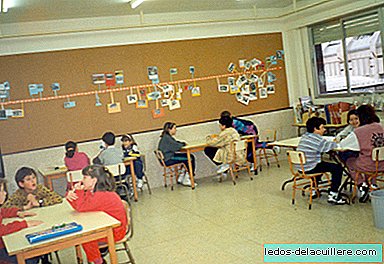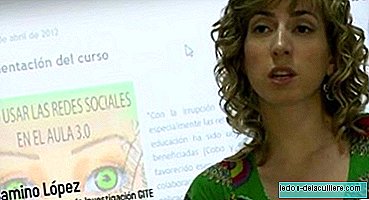
The proposals of the Ministry of Education for the preliminary draft of the Organic Law for the Improvement of Educational Quality are raising discrepancies between the Government and some of the organizations that represent the different educational sectors.
From the ministry it is affirmed that the weak points of the educational system are collected, however one of the discordant opinions (that of CEAPA) maintains that the measures outlined in the document, together with the educational cuts that are already being applied, will not improve the quality of the education system, although indicated by the name of the law promoted by the Ministry of Education.
You will have heard that Minister Wert is presenting the draft Law to the different groups involved. The Government intends to reduce educational dropout, raise the number of excellent students, improve the results of international reports, and raise the employability rate. Among the institutions and personalities that are critical of the proposals, is the Vice President and Minister of Education of the Government of the Canary Islands (José Miguel Pérez), who said that the measures'they suppose true walls complicating the access of boys and girls to public and quality education '.
For its part, CEAPA analyzes the repercussions that the implementation of some of the specific points of the preliminary project could have:
ESO itineraries
If the third course of the ESO is advanced, the Itinerary configuration can establish the early segregation of the students, marginalizing and expelling Itineraries in the ESO
The Spanish Constitution indicates that Basic education is compulsory until age 16. Exclude before that age certain students from the basic knowledge, mandatory and common to all undermine that constitutional principle.
In addition, these itineraries involve the separation of students according to their abilities at 14 years of age: the supposedly most capable educational centers will guide them towards the Baccalaureate, and the less capable ones towards a devalued FP. Therefore, it is a regression for our educational system and the return to previous models.
The OECD study "Equity and quality of education. I support students and schools with disadvanteges" he says verbatim that “early selection of students has a negative effect on students assigned to lower levels and increases inequalities without raising average performance,” and advocates “reinforcing more complete schooling”. Just the opposite of what the Government will do.
I would like to contribute the vision of Rafael Feito, Professor of Sociology at the Complutense University of Madrid. Given the argument that there are successful countries that segregate at age 14, he tells us that there are also other countries with good academic performance, which maintain the common trunk until 16 (Finland, Canada or Sweden are among them). When segregated earlier, the results are less equal
Initial professional qualification program
CEAPA defends that a student can join these programs only after having exhausted the educational system all measures of attention to diversity. And be alert also about the excessive implementation of PCPIs in institutes, which could lead to turning many of these public centers into ghettos for students with low academic level.

Center Autonomy
CEAPA defends an organizational, pedagogical and economic management autonomy of the centers that allows both the development of educational projects and the organization of attention to student diversity, the elaboration of coexistence plans, etc.
However, this confederation believes that The autonomy of the centers has an insurmountable limit that the educational administrations must guarantee: curricular autonomy. Therefore, there have been oppositions to granting greater curricular autonomy to the centers, as this can become an instrument capable of modifying the educational offer, leading to centers of "curricular specialization" and the selection of students by the curriculum.
On the other hand Rafael Feito indicates that it could be unconstitutional that it is intended to limit the functions of the School Council to advice, since in article 27 of the Spanish Constitution it is indicated that teachers, parents and students participate in the control and management of the centers maintained With public funds.
External evaluations
The revalidations at the end of each educational stage do not reflect the effort made by the student throughout the courses and puts an end to the concept of continuous evaluation. They are likely to result in increased repetitions, and in this regard the OECD itself considers that repetition "is expensive and does not improve educational outcomes." Spain is one of the countries with the highest rate of repeaters, as 35% of 15-year-old students have repeated.
Maybe they should implement diversity attention programs that address, as soon as possible, students' learning problems.
The revalidation at the end of the ESO will cause a increased early school dropout rate once the compulsory education is finished, since those who do not pass it will not be able to continue studying neither FP nor Baccalaureate. And this measure goes against the objectives set by the European Union for the year 2020 to reduce the rate of early school leaving up to 10%. It should be remembered that Spain is in the twenty-fifth place in school dropout, followed only by Portugal and Malta.
Although we are assured that there is no element in the document that invites us to think about inequality, the application of the measures will worsen the problem of school failure.
Images | Donostia Kultura, peretzp Source | CEAPA In Babies and More | The Minister of Education asserts that the quality of education will not be affected by the cuts
In Peques and More | New cuts in primary and secondary education, 'Our country cannot do without such an important instrument as the public school', interview with Jesús Mª Sánchez, The appearance of the Minister of Education Wert of January 31, 2012 proposes important changes in education












